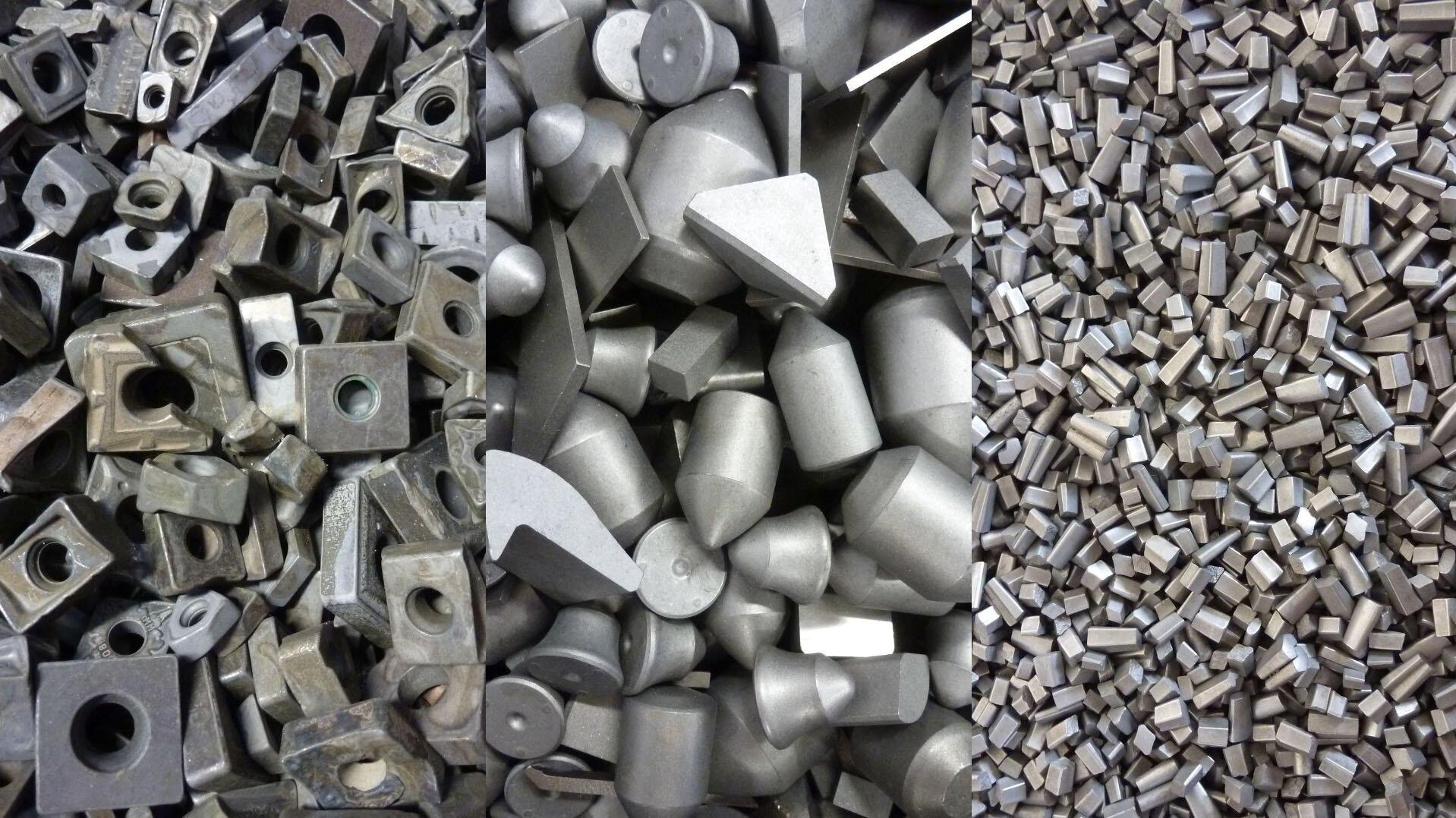Tungsten scrap, often considered insignificant by many, is a hidden treasure trove of value waiting to be discovered. In this article, we will delve into the various dimensions of the value that tungsten scrap holds, both economically and environmentally.
Economic Value
Resource Efficiency
Recycling tungsten scrap is an economically savvy choice. It significantly reduces the need for mining and processing of new tungsten ore. This translates into cost savings for industries that rely on tungsten, such as aerospace, electronics, and automotive.
Market Demand
The demand for recycled tungsten is rising as industries increasingly seek sustainable alternatives. Manufacturers are willing to pay competitive prices for high-quality recycled tungsten, creating economic opportunities for businesses and entrepreneurs engaged in recycling operations.
Job Creation
The recycling of tungsten scrap contributes to job creation. From collection and sorting to processing and distribution, the recycling industry sustains a workforce that benefits local economies.
Environmental Value
Resource Conservation
Tungsten is a finite resource, and mining for it can have detrimental ecological impacts. Recycling tungsten scrap conserves this precious metal, reducing the strain on natural resources and ecosystems.
Energy Efficiency
Compared to the energy-intensive process of extracting tungsten from ore, recycling tungsten scrap is far more energy-efficient. This reduces energy costs and minimises carbon emissions, making it an environmentally responsible choice.
Waste Reduction
Recycling tungsten scrap prevents these valuable materials from ending up in landfills or, worse, as environmental pollutants. It promotes the principles of the circular economy, where resources are reused and waste is minimized.
Strategic Value
Resource Security
Tungsten is classified as a critical and strategic material due to its importance in various industries, including defence—recycling tungsten scrap bolsters resource security by decreasing dependence on foreign sources and enhancing national resilience.
Geopolitical Stability
Reducing reliance on foreign tungsten reserves reduces vulnerability to geopolitical tensions and supply disruptions. It fosters a more stable supply chain for industries that rely on this critical material.

Technological Advancements
Innovation Catalyst
Recycling tungsten scrap fuels innovation. As researchers and engineers delve into recycling technologies, they discover more efficient ways to extract and process tungsten. This ongoing innovation enhances recycling methods and benefits industries that rely on tungsten for cutting-edge technologies.
Diverse Applications
The value of tungsten scrap extends to its diverse applications across multiple industries. Beyond traditional uses, tungsten is vital for emerging technologies like electric vehicles, advanced weaponry, and high-performance electronics. The availability of recycled tungsten supports these sectors’ growth and development.
Sustainable Practices
Environmental Responsibility
Recycling tungsten scrap aligns with global efforts to reduce environmental harm. By opting for recycling over mining, we decrease the ecological footprint associated with tungsten production. This eco-friendly approach contributes to cleaner air, water, and land.
Circular Economy
The circular economy concept emphasises the continuous use and reuse of materials. Tungsten scrap recycling embodies this concept, creating a closed-loop system where resources are continually cycled, minimising waste and reducing the need for new extraction.
Future Prospects
Market Expansion
The demand for recycled tungsten is expected to grow in the coming years as environmental concerns and resource scarcity become more pressing. You are engaging in tungsten scrap recycling, which positions industries and businesses to effectively meet this increasing demand.
Global Collaboration
Addressing the value of tungsten scrap requires cooperation at a global level. International agreements and collaborations can further advance recycling technologies, facilitate responsible sourcing, and promote the ethical trade of tungsten materials.
Conclusion
Tungsten scrap is not just waste but a valuable resource contributing to economic prosperity, environmental sustainability, and strategic security. Recognising the multifaceted value of tungsten scrap is the first step toward unlocking its potential and harnessing it to benefit society and the planet. As we prioritise responsible resource management, recycling tungsten scrap is crucial to a more sustainable and resilient future. For more details, visit here.
Summary
Tungsten scrap refers to discarded or unused tungsten materials and products that can be recycled or repurposed for various industrial applications. Tungsten, known for its exceptional hardness and high melting point, is a critical metal widely used in manufacturing electrical wires, lightbulb filaments, aerospace components, and more.
The recycling of tungsten scrap is essential for several reasons. Firstly, tungsten is a finite resource, and mining it can have environmental and geopolitical consequences. Recycling helps conserve this valuable material and reduces the need for new mining operations. Secondly, recycling tungsten is cost-effective, requiring less energy than extracting and processing raw tungsten ore.
Tungsten scrap can originate from various sources, including machining and fabrication processes, end-of-life products, and mining residues. It undergoes a systematic recycling process, including collection, sorting, and refining. Tungsten carbide scrap, in particular, is highly sought after because it can be reclaimed and used to produce new cutting tools, drill bits, and other high-performance industrial components.
Additionally, tungsten recycling contributes to sustainability by reducing waste and greenhouse gas emissions associated with mining and refining processes. It also supports the circular economy by extending the lifespan of tungsten products and reducing the need for virgin materials.
Furthermore, tungsten scrap recycling aligns with global efforts to reduce carbon footprints and minimize the environmental impact of industrial processes. By diverting scrap from landfills and incineration, we reduce the release of harmful pollutants and greenhouse gases into the atmosphere, contributing to a cleaner and healthier planet.
Tungsten’s unique properties, such as its resistance to extreme temperatures and corrosion, make it irreplaceable in critical sectors like aerospace, defence, and electronics manufacturing. Without an efficient recycling system, the demand for virgin tungsten resources would be much higher, leading to increased mining activity and potential supply chain disruptions.
Tungsten recycling also bolsters the economy by creating job opportunities in the collection, processing, and manufacturing sectors. The recycling industry associated with tungsten scrap generates revenue and stimulates local economies, which can be especially important in regions with tungsten mining and manufacturing hubs.


